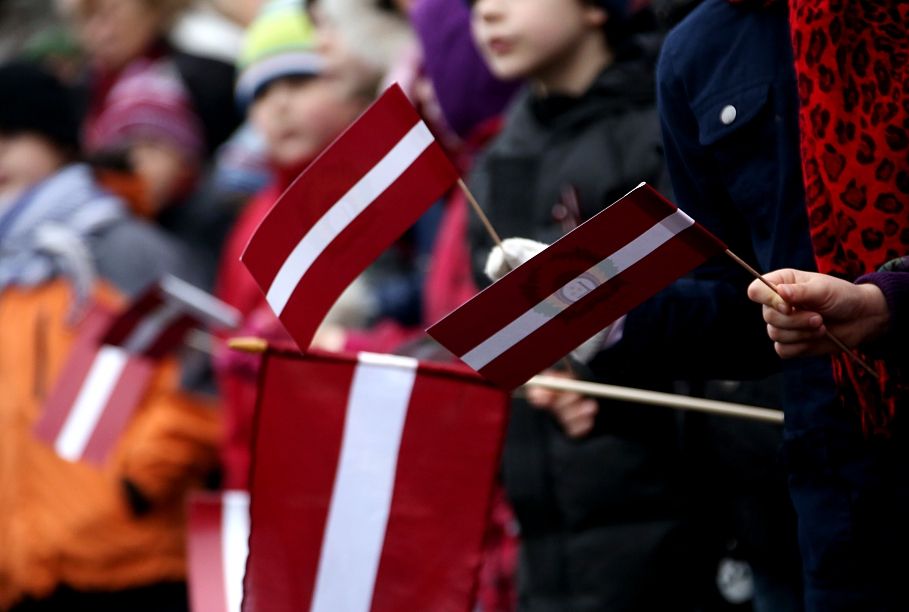Interior Ministry and National Armed Forces (NBS) units paraded before the President and the public at Freedom Monument square on Tuesday afternoon.
Earlier in the day hundreds attended an ecumenical service at the Riga Dom devoted to those who have given their lives fighting for Latvia, thousands silently layed flowers and wreaths at the Eternal Flame of the Veterans’ Cemetery and other monuments to Latvian war heroes such as Colonel Oskars Kalpaks, the first commander of the National Armed Forces.
By evening thousands had assembled at the Daugava riverside by the Riga Castle to light a multitude of candles. This year the tradition, which was renewed spontanously by independence-minded Latvians in 1988, had to be curtailed to protect the wall and foundations of the Riga Castle, which is currently undergoing extensive renovation works. Instead, people of all ages and origins lit and left their candles on the sidewalks and curbside on the riverside drive named for the date of today's holiday, which was closed to traffic by the municipal authorities for the occasion.
Latvians this week are also being urged to pin a parsed-flag ribbon to their clothes and light candles across the land and around the world to show their love for Latvia and honor the heroes who won its national independence almost a century ago.
According to cloth maker Latvijas tekstils, an estimated 70-kilometer long stretch of the white-striped maroon Latvian flag ribbons have been sewn together in preparation for the holiday week.
Also this year, Latvians online around the world are promoting a virtual candle-lighting ceremony to bring the diaspora together beyond the national borders during the holiday week.
The respected public opinion pollster SKDS has been measuring Latvians’ patriotism levels since 1998, surveying both Latvian and Russian-speaking residents on their attitudes toward the nation. According to the agency, this year more people than ever ‘surely’ considered themselves to be patriotically inclined (35% over 30% last year), while 36% were ‘fairly sure’ about their patriotism (40% last year).
Every fifth person per thousand surveyed was negatively inclined toward feeling patriotic, while 6% said they were ‘surely not’ patriots of Latvia.
As SKDS chief Arnis Kaktiņš explained, the difference between Latvians and Russian-speaking residents is quite notable, but isn’t the only breakdown in varying levels of patriotism among the population. While about half of all Latvians surveyed say they are patriots, only 18% of Russian-speakers would agree with such a claim about themselves.
“Unfortunately, there is also a correlation between how much people earn and how patriotic they feel,” he said. “The poorest people tend to be the least patriotic. And geographically speaking, residents of Riga tend to say they’re the greatest patriots.” Women also tend to admit to more patriotic feelings than men in Latvia do, according to SKDS.
Lāčplēsis, or Bearslayer, is a character based on a folk legend derived from Latvia’s founding national literary traditions, a folk hero who plunges into the Daugava River while locked in eternal mortal combat with the Black Knight, who stands for the Latvian people’s historic foreign oppressors.





























